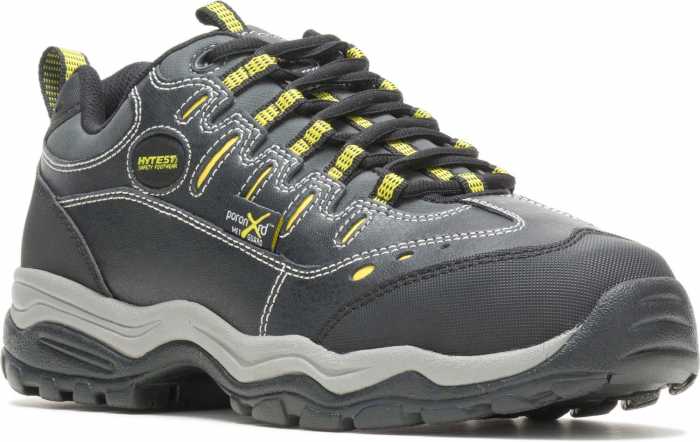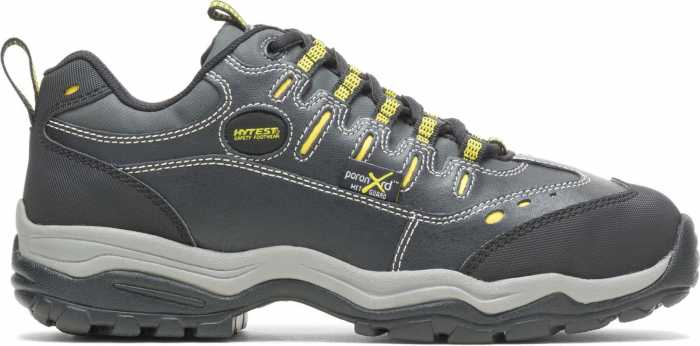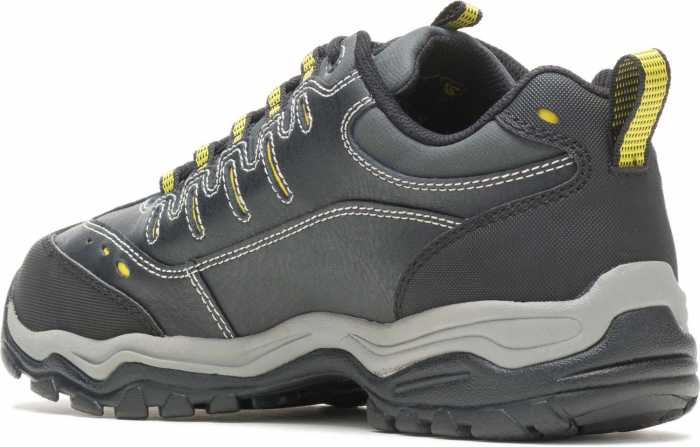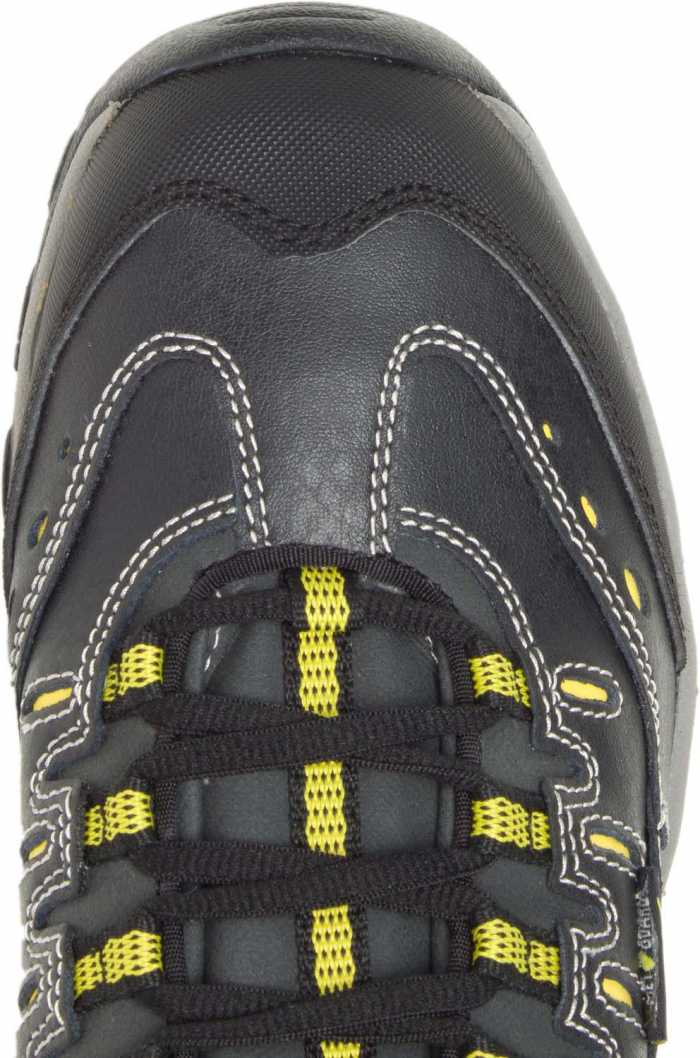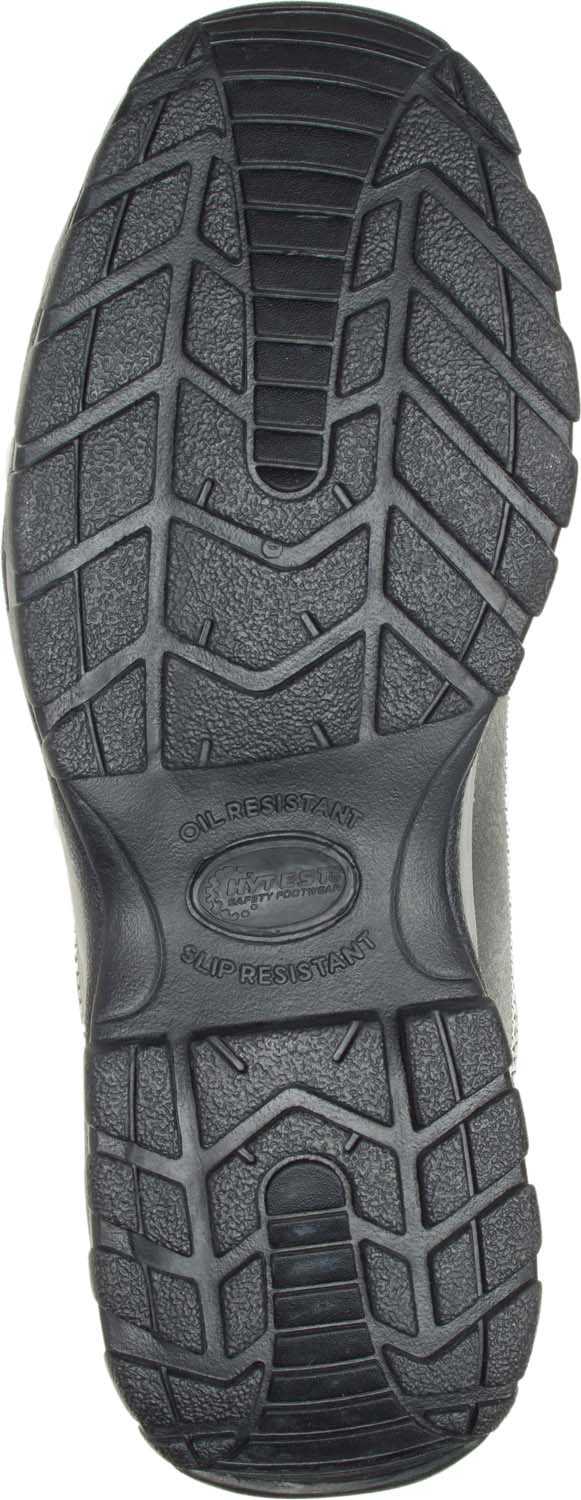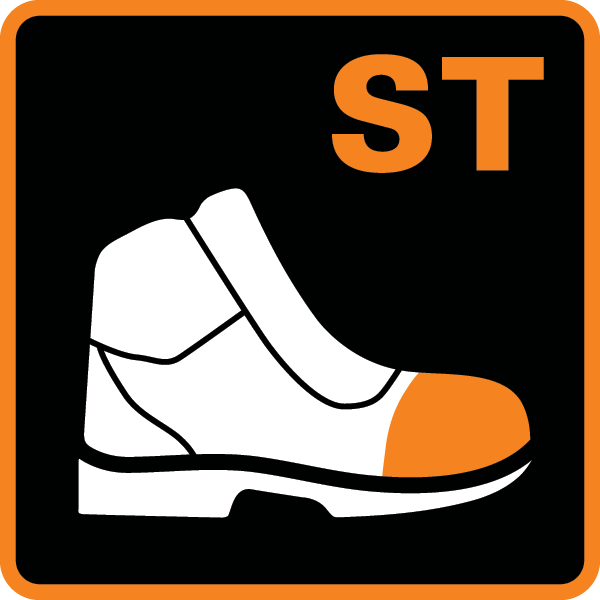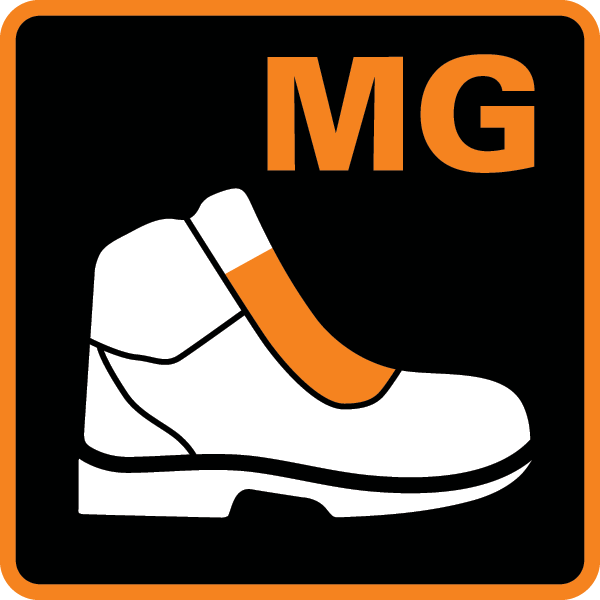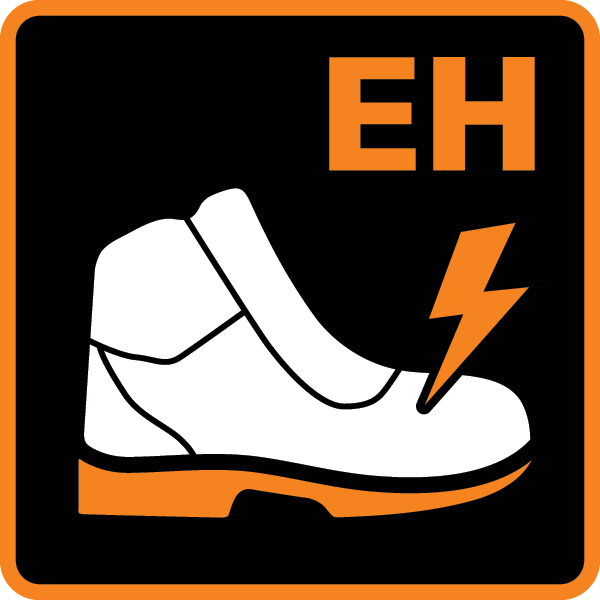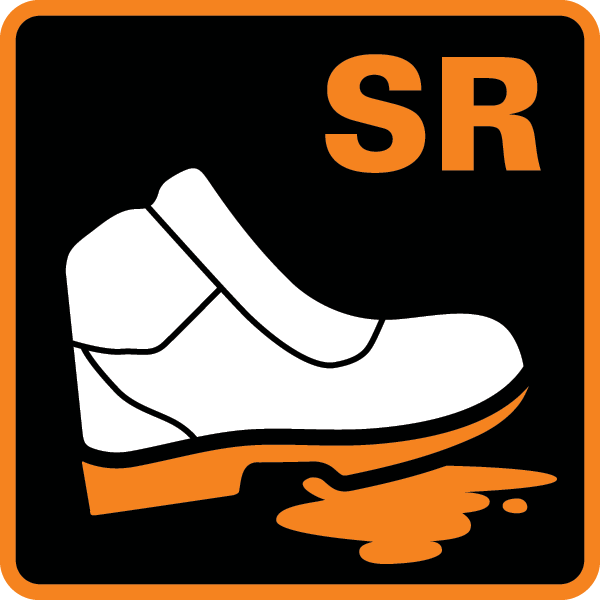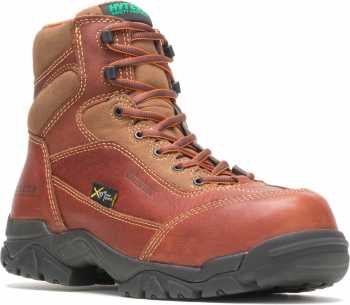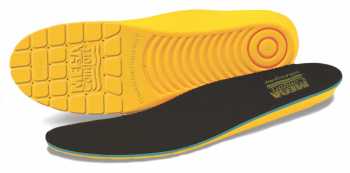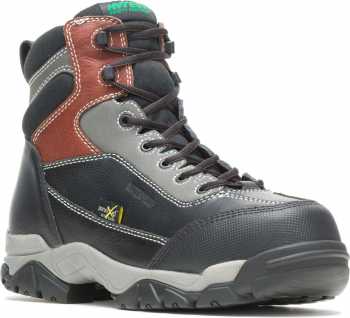HYTEST 11200 Black Electrical Hazard, Steel Toe, Poron XRD Internal Met-Guard Men's Athletic
Style: 11200
$134.99
-
Product Details
Badland leather upper. High abrasion performance mesh lining. Removable PESU III EVA footbed. Poron XRD internal met-guard. Lightweight EVA cushioned midsole. Oil and slip resistant rubber outsole.Strobel/cement construction. Steel toe. EH. Mt. ASTM F2413-18 M/ I/ C EH Mt compliant.
Safety Features
STEEL SAFETY TOE
In 1995 OSHA began enforcing a new standard for personal protective equipment. As part of this standard employers now require ASTM F2413-18 rated safety footwear in areas where employees are exposed to injury as a result of falling or rolling objects. All steel toe boots with this icon meet or exceed ASTM F2413-18 I/C standards.METATARSAL GUARD
Metatarsal guard shoes protect both the toes and the metatarsal bone behind the toes. Metatarsal guard shoes are required in any environment where injuries can occur to the metatarsal bone. They are most commonly used in foundries, welding, air product distribution and other heavy manufacturing. All styles marked with the "MG" icon meet the ASTM F2413-18 Mt standards.ELECTRICAL HAZARD
The soles of EH shoes provide a barrier to protect employees from open electrical currents up to 600 volts. EH shoes are often needed in maintenance, welding and engineering positions. All styles marked with the “EH” icon in this catalog meet the ASTM F2413-18 EH standards.SLIP RESISTANT
Slip resistant safety footwear is the fastest growing segment of the safety footwear industry. For many employers with wet, oily, and/or greasy floors, it is common sense to require slip resistant safety footwear. Slip related injuries can be extremely costly. No shoe is slip proof, however employers who require slip resistant shoes can reduce worker’s compensation claims. -



